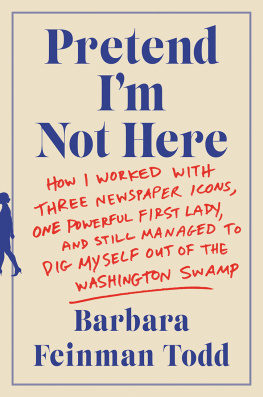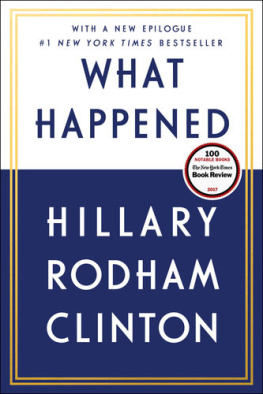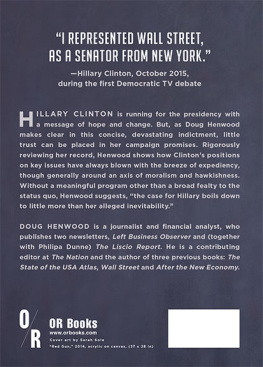Barbara Feinman Todd - Pretend I’m Not Here: How I Worked with Three Newspaper Icons, One Powerful First Lady, and Still Managed to Dig Myself Out of the Washington Swamp
Here you can read online Barbara Feinman Todd - Pretend I’m Not Here: How I Worked with Three Newspaper Icons, One Powerful First Lady, and Still Managed to Dig Myself Out of the Washington Swamp full text of the book (entire story) in english for free. Download pdf and epub, get meaning, cover and reviews about this ebook. year: 2017, publisher: William Morrow, genre: Detective and thriller. Description of the work, (preface) as well as reviews are available. Best literature library LitArk.com created for fans of good reading and offers a wide selection of genres:
Romance novel
Science fiction
Adventure
Detective
Science
History
Home and family
Prose
Art
Politics
Computer
Non-fiction
Religion
Business
Children
Humor
Choose a favorite category and find really read worthwhile books. Enjoy immersion in the world of imagination, feel the emotions of the characters or learn something new for yourself, make an fascinating discovery.
- Book:Pretend I’m Not Here: How I Worked with Three Newspaper Icons, One Powerful First Lady, and Still Managed to Dig Myself Out of the Washington Swamp
- Author:
- Publisher:William Morrow
- Genre:
- Year:2017
- Rating:3 / 5
- Favourites:Add to favourites
- Your mark:
Pretend I’m Not Here: How I Worked with Three Newspaper Icons, One Powerful First Lady, and Still Managed to Dig Myself Out of the Washington Swamp: summary, description and annotation
We offer to read an annotation, description, summary or preface (depends on what the author of the book "Pretend I’m Not Here: How I Worked with Three Newspaper Icons, One Powerful First Lady, and Still Managed to Dig Myself Out of the Washington Swamp" wrote himself). If you haven't found the necessary information about the book — write in the comments, we will try to find it.
An accomplished former ghostwriter and book researcher who worked with Bob Woodward, Carl Bernstein, Ben Bradlee, and Hillary Clinton goes behind-the-scenes of the nationals capital to tell the story of how she survived the exciting, but self-important and self-promoting world of the Beltway.
Barbara Feinman Todd has spent a lifetime helping other people tell their stories. In the early 1980s, she worked for Bob Woodward, first as his research assistant in the papers investigative unit and, later, as his personal researcher for Veil, his bestselling book about the CIA. Next she helped Carl Bernstein, who was struggling to finish his memoir, Loyalties. She then assisted legendary editor Ben Bradlee on his acclaimed autobiography A Good Life, and she worked with Hillary Clinton on her bestselling It Takes a Village. Feinman Todds involvement with Mrs. Clinton made headlines when the First Lady neglected to acknowledge her role in the books creation, and later, when a disclosure to Woodward about the Clinton White House appeared in one of his books. These events haunted Feinman Todd for the next two decades until she confronted her past and discovered something startling.
Revealing what its like to get into the heads and hearts of some of Washingtons most compelling and powerful figures, Feinman Todd offers authentic portraits that go beyond the carefully polished public personas that are the standard fare of the Washington publicity factory. At its heart, Pretend Im Not Here is a funny and forthcoming story of a young woman in a male-dominated world trying to find her own voice while eloquently speaking for others.
Barbara Feinman Todd: author's other books
Who wrote Pretend I’m Not Here: How I Worked with Three Newspaper Icons, One Powerful First Lady, and Still Managed to Dig Myself Out of the Washington Swamp? Find out the surname, the name of the author of the book and a list of all author's works by series.








